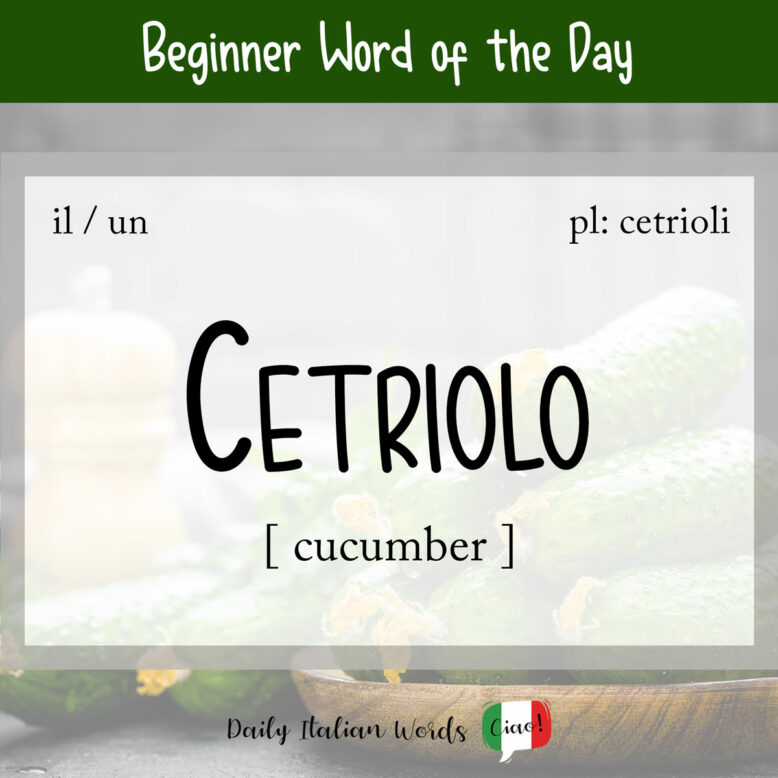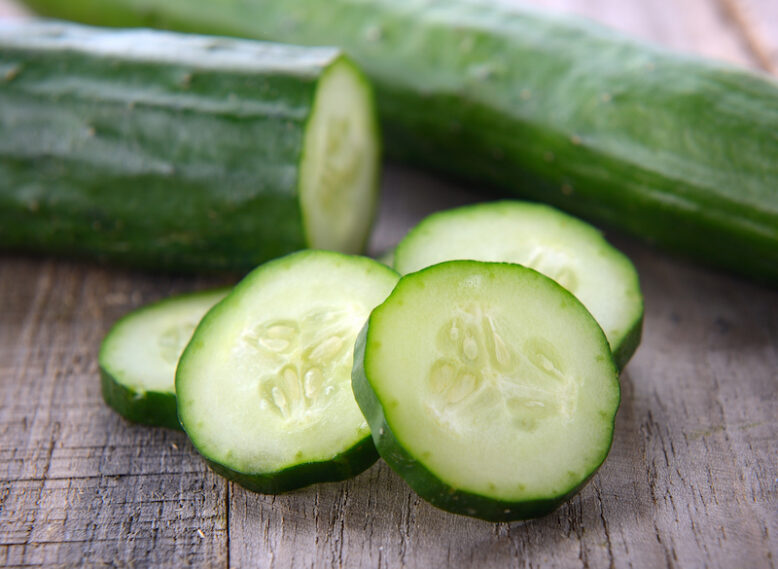Cetriolo is the standard Italian word for cucumber. Is is derived from the Vulgar Latin citriòlum, and in turn from citrium, which comes from citrus (meaning “citron”).
cetriolo
cucumber

Being a masculine noun, it takes the following definite and indefinite articles:
- il cetriolo = the cucumber
- un cetriolo = a cucumber
- i cetrioli = the cucumbers
- dei cetrioli = (some) cucumbers
Ricordati di prendere un po’ di cetrioli quando vai al supermercato.
Remember to buy some cucumbers when you go to the supermarket.
Another potential translation is cocomero, which shares the Latin root cucumis with the English term cucumber. Predominantly heard in Sicily, Veneto, and Friuli, it is also the term for watermelon in southern Italy.

If you are Italian American, you may be familiar with the word jadrool (or chadrool), which is a slang term derived from cidrule, the southern dialectal form of cetriolo.
In both standard Italian and its dialectal forms, cetriolo can also be used figuratively as an insult for someone who is stupid. An alternative insult that was born of cetriolo, or more precisely the Neapolitan form cetrulo, is citrullo (idiot, moron). Why cucumbers are so closely associated with stupidity across the Italian peninsula is hard to say!
Quel cetriolo ha rovinato tutto.
That moron ruined everything.
A pickled cucumber is known as a cetriolo sottaceto, with sottaceto meaning “in vinegar” or “pickled“. Gherkins, on the other hand, are known as cetriolini (literally “small cucumbers“).

And what about the sea cucumber? In Italian, it is officially called an oloturia, but informally you can use the terms cetriolo di mare or cetriolo marino.
Heather Broster is a graduate with honours in linguistics from the University of Western Ontario. She is an aspiring polyglot, proficient in English and Italian, as well as Japanese, Welsh, and French to varying degrees of fluency. Originally from Toronto, Heather has resided in various countries, notably Italy for a period of six years. Her primary focus lies in the fields of language acquisition, education, and bilingual instruction.


